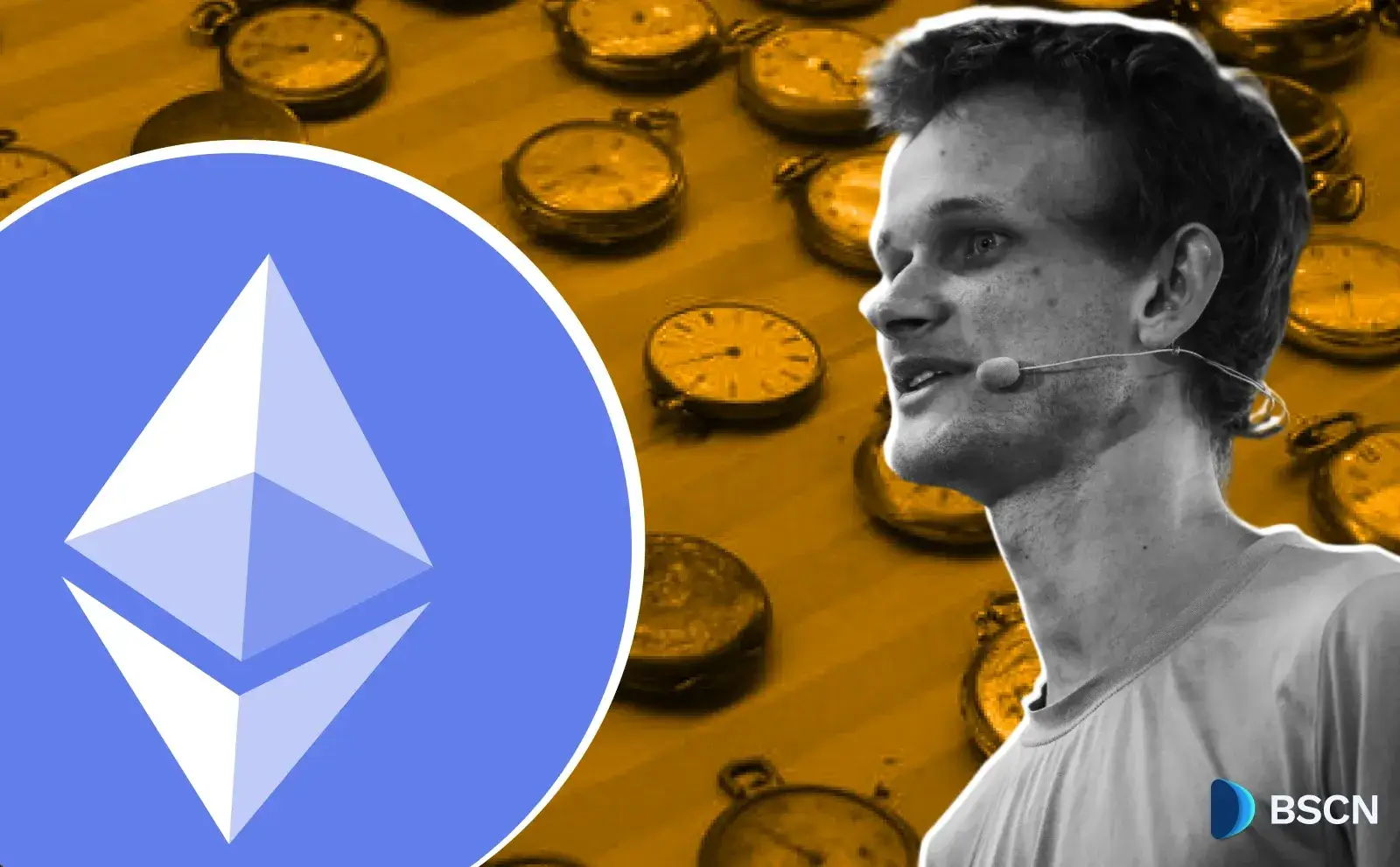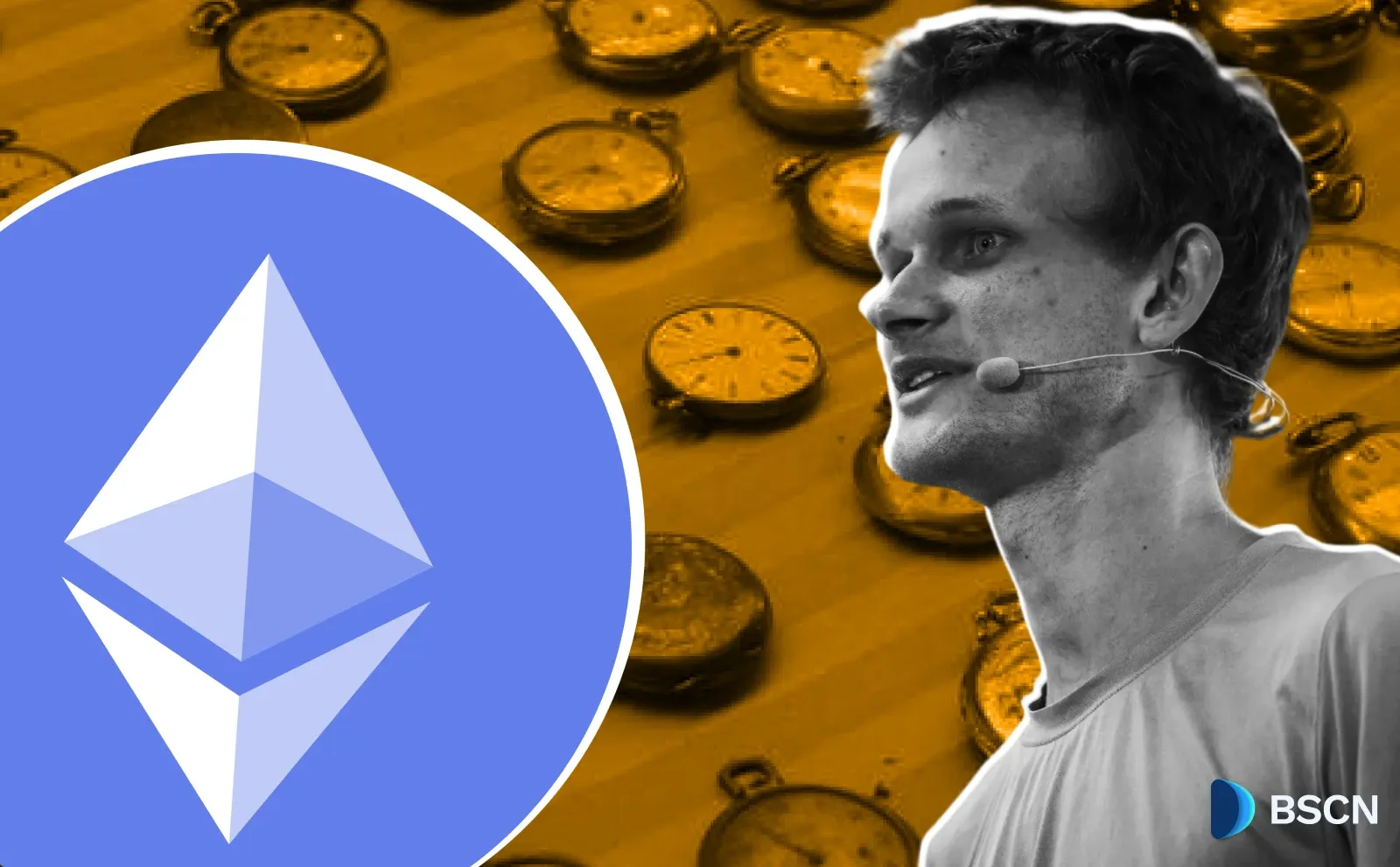Vitalik Buterin Proposes Five Year Plan to Make Ethereum as Simple as Bitcoin

Vitalik Buterin aims to create a base layer that is easier to understand, more secure, and more inclusive — reducing the risks of bugs, social manipulation, and technical gatekeeping in the Ethereum ecosystem.t
Soumen Datta
May 5, 2025
Table of Contents
Ethereum, the second-largest cryptocurrency network by market capitalization, has always been more complex than Bitcoin. Its advanced smart contracts and decentralized applications (dApps) offer tremendous utility but have also made Ethereum’s protocol more intricate and harder to navigate. Now, Vitalik Buterin, the co-founder of Ethereum, wants to change that.
On May 3, 2025, Buterin announced a comprehensive five-year plan aimed at simplifying Ethereum’s protocol to make it as “beautifully simple” as Bitcoin. His goal is to make Ethereum more secure, easier to understand, and scalable for both developers and users.
Buterin’s proposed changes will involve a shift in Ethereum’s consensus mechanism, a new instruction set for processing transactions, and enhanced privacy features. Here’s a look at his vision and the potential impact on Ethereum's future.

Simplifying Ethereum’s Consensus System
One of the key proposals in Buterin’s plan is to overhaul Ethereum's consensus mechanism. Currently, Ethereum relies on a Proof of Stake (PoS) system, but Buterin suggests a simpler alternative with a “3-slot finality” model. This change would streamline the process by reducing the steps involved in reaching consensus, potentially increasing the speed and efficiency of the network.
The proposal aims to address one of Ethereum's biggest challenges: its growing complexity. Ethereum’s current consensus system, while highly secure, involves intricate calculations and multiple validation steps, which can slow down transaction times. Buterin believes simplifying this process would not only improve Ethereum’s scalability but also make it more accessible to developers, users, and researchers.
By focusing on reducing complexity, Buterin hopes to make Ethereum more approachable for a wider audience, ensuring that it remains a "credibly neutral and globally trusted base layer." He emphasized that simplifying the protocol would foster greater participation in protocol research, development, and governance, which could lead to more innovation and faster adoption.
Transition to RISC-V for Faster Execution
Another key aspect of Buterin’s plan involves replacing Ethereum’s existing virtual machine, the Ethereum Virtual Machine (EVM), with an open-source instruction set known as RISC-V. The EVM was custom-built to process Ethereum’s complex smart contracts and dApps, but it requires translation steps that slow down the network’s performance.
In contrast, RISC-V is a more straightforward, open-source instruction set that could streamline processing by eliminating extra translation layers. By enabling Ethereum to directly interact with the execution layer, RISC-V could make certain operations up to 100 times faster. The speed boost would come without sacrificing compatibility with existing Ethereum smart contracts.
Buterin’s rationale for switching to RISC-V is simple: it’s easier to understand and use. With fewer layers of translation and a simpler design, more people would be able to engage with Ethereum’s protocol. This could potentially reduce the cost of creating new infrastructure, such as new clients and developer tools, making it more efficient in the long term.
Benefits of a Simpler Ethereum Protocol
Buterin’s desire to simplify Ethereum isn’t just about improving the user experience — it’s about making the network more secure and sustainable. A simpler protocol comes with several significant advantages:
- Reduced Risk of Bugs and Vulnerabilities
The more complex a system is, the higher the likelihood of bugs and vulnerabilities. By simplifying Ethereum’s design, Buterin believes the risk of catastrophic errors can be minimized. A simpler protocol also makes it easier to verify that no such bugs exist, which is critical for maintaining security.
- Lower Infrastructure Costs
Simplifying Ethereum’s design would also make it cheaper to build new infrastructure, including clients, provers, and other developer tools. This would likely encourage more developers to create applications on Ethereum, helping to fuel its growth.
- Lower Long-Term Maintenance Costs
The fewer components there are in Ethereum’s protocol, the lower the long-term maintenance costs will be. A simpler system would require less oversight and fewer updates, freeing up resources that could be spent on innovation instead.
- Decreased Social Attack Surface
Buterin highlighted that reducing the protocol’s complexity would also reduce the "social attack surface." In other words, there would be fewer points of entry for bad actors seeking to exploit weaknesses in the system. Simplifying the network would make it more resilient to social manipulation and special interests.
The Role of Privacy in Ethereum’s Evolution
Beyond simplifying the protocol, Buterin is also focused on enhancing Ethereum’s privacy features. In his blog post, he discussed the importance of privacy for both individuals and larger societal systems. Privacy is essential, he argues, for maintaining freedom, fairness, and social order.
Without adequate privacy protections, openness and decentralization — two core tenets of the cryptocurrency world — begin to break down. Buterin believes that privacy tools like zero-knowledge proofs (ZKPs) and fully homomorphic encryption (FHE) could play a vital role in securing Ethereum and ensuring that it remains a platform where users can act without fear of judgment or manipulation.
ZKPs are already being integrated into privacy-focused Ethereum applications. These tools allow users to prove the validity of certain information without revealing the underlying data. Buterin views this as a crucial step forward in a world where AI and biometric technology are rapidly advancing, making personal data more vulnerable than ever.
The push for enhanced privacy is rooted in Buterin’s broader philosophical vision. He argues that the "true alpha" of privacy lies not only in protecting individual users but in preserving the integrity of larger systems, such as elections and unbiased AI. In his view, too much transparency — especially of the wrong kind — can lead to chaos and manipulation.
The Path to Bitcoin-like Simplicity
Buterin’s goal of making Ethereum as "beautifully simple" as Bitcoin is ambitious. Bitcoin’s protocol, by design, is remarkably simple and efficient, enabling it to process transactions quickly and securely. Buterin admires this simplicity and believes it is a key reason why Bitcoin has gained such widespread trust and adoption.
In his blog post, Buterin reflected on Bitcoin’s straightforward design, which makes it easier to reason about, develop, and maintain. He believes Ethereum could benefit from a similar approach — one that balances efficiency with simplicity. Buterin’s vision is for Ethereum to become a platform that is not only powerful but also accessible to a global audience, offering both security and scalability without compromising on privacy.
Read Next...
Disclaimer
Disclaimer: The views expressed in this article do not necessarily represent the views of BSCN. The information provided in this article is for educational and entertainment purposes only and should not be construed as investment advice, or advice of any kind. BSCN assumes no responsibility for any investment decisions made based on the information provided in this article. If you believe that the article should be amended, please reach out to the BSCN team by emailing [email protected].
Author
 Soumen Datta
Soumen DattaSoumen has been a crypto researcher since 2020 and holds a master’s in Physics. His writing and research has been published by publications such as CryptoSlate and DailyCoin, as well as BSCN. His areas of focus include Bitcoin, DeFi, and high-potential altcoins like Ethereum, Solana, XRP, and Chainlink. He combines analytical depth with journalistic clarity to deliver insights for both newcomers and seasoned crypto readers.
Crypto Project & Token Reviews
Project & Token Reviews
Comprehensive reviews of crypto's most interesting projects and assets
Learn about the hottest projects & tokens


















